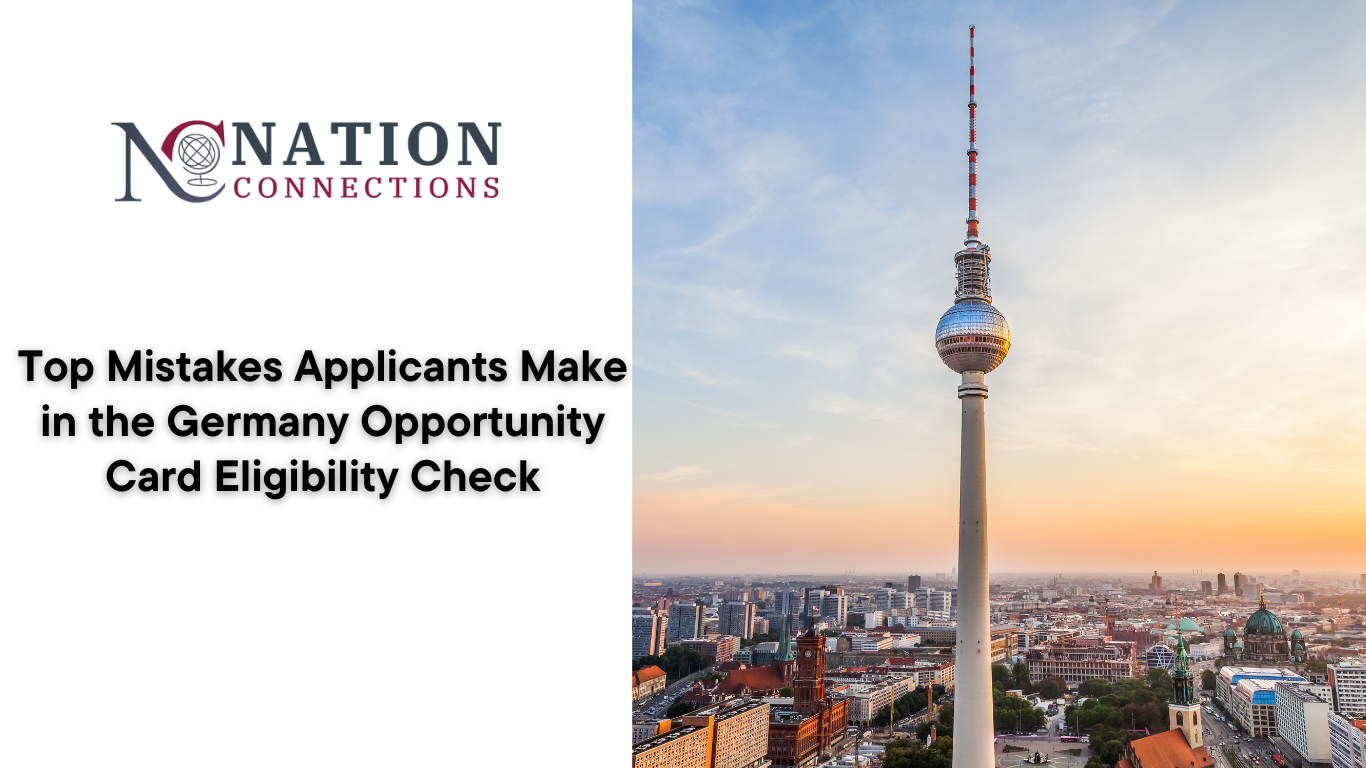
One of the common blunders is assuming a foreign university degree or vocational qualification automatically counts. But Germany requires your qualification either to be recognised as equivalent (via Zentralstelle für ausländisches Bildungswesen (ZAB)) or to meet the criteria under the points-based system.
If you skip this step you risk failing the eligibility check right away.
Tip: Before applying, check your institution/degree in the German database (e.g., Anabin) and make sure you understand which pathway you are using (recognition vs points).
If you apply under the points-based route, some applicants mis-calculate or ignore certain criteria like age, work experience, language, assignment to shortage occupations, etc.
Mistakes here often mean you think you qualify but you don’t.
Tip: Do a realistic assessment of your profile – work years, age, field, language level – and only apply if you are confident you cross the required threshold (or meet the recognition route).
This is perhaps the most frequent mistake: incomplete documents, outdated forms, missing translations, missing signatures, unclear copies.
If documentation is missing or improperly prepared, the eligibility check fails.
Tip: Use the official checklist (for example the one from the Berlin authorities) and tick off each item carefully. Ensure any non-German or non-English document is translated by a certified translator.
Applicants often overlook how much proof of funds is expected. For the Opportunity Card you must demonstrate you can support yourself while job-searching in Germany (often up to 12 months).
Depositing funds only a few days before your appointment, or providing funds that are not clearly accessible, are common errors.
Tip: Make sure you have the required amount (for example ~€13,092 for 12 months) in a blocked account or other recognised proof and it appears in your financial documents in a credible way.
While the Opportunity Card may not always require high-level German, applicants frequently underrate the importance of language skills and realistic job search alignment. Having minimal or no proof of language (German or English) can weaken your eligibility.
Also, having a vague job search plan or fields that don’t match German demand can raise red flags.
Tip: If possible, have at least some certified proof of language level (even A1/A2), and include a clear job search strategy aligned with demand in Germany (IT, engineering, healthcare, etc) in your motivation letter.
Sometimes applicants assume that if one part is weak (say, qualification recognition) they can still rely on other parts and “fix it in Germany later”. This is risky. If eligibility fails at checking stage, your application may be rejected outright.
Tip: Aim to have your application fully compliant with eligibility before submission rather than relying on remedial measures post arrival/approval.
Because the Opportunity Card is relatively new (2024 onward) and is being rolled out in different countries, some rules (forms, amounts, timelines) may change. Applicants sometimes apply under outdated rules.
Tip: Before your application, go to the official German embassy/consulate website in your country and check for the latest checklist, financial amounts, appointment procedure, etc.
| Mistake | Why it matters |
|---|---|
| Not verifying qualification recognition | Your degree may not meet German equivalency → eligibility fails |
| Mis-calculating points | You may think you meet criteria when you don’t |
| Incomplete or incorrect documents | Application can be rejected or delayed |
| Weak financial proof | You must show you can support yourself while job searching |
| Ignoring language/job market alignment | Weak applications are viewed as less credible |
| Assuming fixes later | Eligibility must often be fully met at submission |
| Using outdated rules/forms | May result in forms being invalid or criteria changed |



